Domestic Animal Research
Domestic animals play an important role in human well-being, and global demand for animal products is steadily expanding. Domesticated animals are those that have been selectively developed and genetically adapted to live alongside humans over generations. Their wild relatives or cousins are genetically separate from them. Domestication of animals can be divided into three categories: companion animals (dogs and cats), food animals (sheep, cows, pigs, turkeys, and so on), and working or draft animals (horses, donkeys, camels). Animals that are strong candidates for domestication usually have a few characteristics in common. Domestication refers to the mutual relationship that exists between animals and people who have control over their care and reproduction. Taming and domestication are not the same thing. Domestication is the permanent genetic change of a bred lineage that leads to an inherited propensity toward humans, whereas taming is the conditioned behavioural modification of a wild-born animal when its natural dislike of humans is diminished and it accepts the presence of humans. This definition takes into account both the biological and cultural aspects of domestication, as well as the consequences for humans and domesticated animals and plants.
- Domestication
- Domestication Syndrome
- Disease in Domestic Animals
- Vaccinations

Marco Polettini
DVM, Italy
Andreia Freitas
INIAV/REQUIMTE, Portugal
Andreia Freitas
INIAV/REQUIMTE, Portugal
Kedibone Gloria Kgosana
Sefako Makgatho Health Sciences University, South Africa
Nnenna Ugwu
Anglia Ruskin University, United Kingdom
Rubens Dias de Melo Junior
Universidade Federal de Goiás, BrazilSubmit your abstract Today
Important Alert:
X


Title : Analyzing veterinary medicine residues in food: A comprehensive guide
Andreia Freitas, INIAV/REQUIMTE, Portugal
Title : Quantifying changes in facial expression following hot-iron disbudding under procaine hydrochloride and meloxicam treatment in Holstein dairy calves
Nnenna Ugwu, Anglia Ruskin University, United Kingdom
Title : Trypanosoma vivax in and outside cattle blood: Parasitological, molecular, and serological detection, reservoir tissues, histopathological lesions, and vertical transmission evaluation
Rubens Dias de Melo Junior, Universidade Federal de Goiás, Brazil
Title : Characterization of porcine rotaviruses in the Czech Republic
Romana Moutelikova, Veterinary Research Institute, Czech Republic
Title : Determination of Circulating Foot-and-Mouth Disease Virus Serotypes in Kenya (2023)
Hellen Mutua, Foot and Mouth Disease National Reference Laboratories, Kenya
Title : Welfare for Amazonian wild animals
Eliane Cardoso Carvalho Moraes, Jungle Warfare Training Center/ Army, Brazil